
Browse our fun-packed, helpful plant-based articles, and delve deeper into this healthy, sustainable lifestyle!


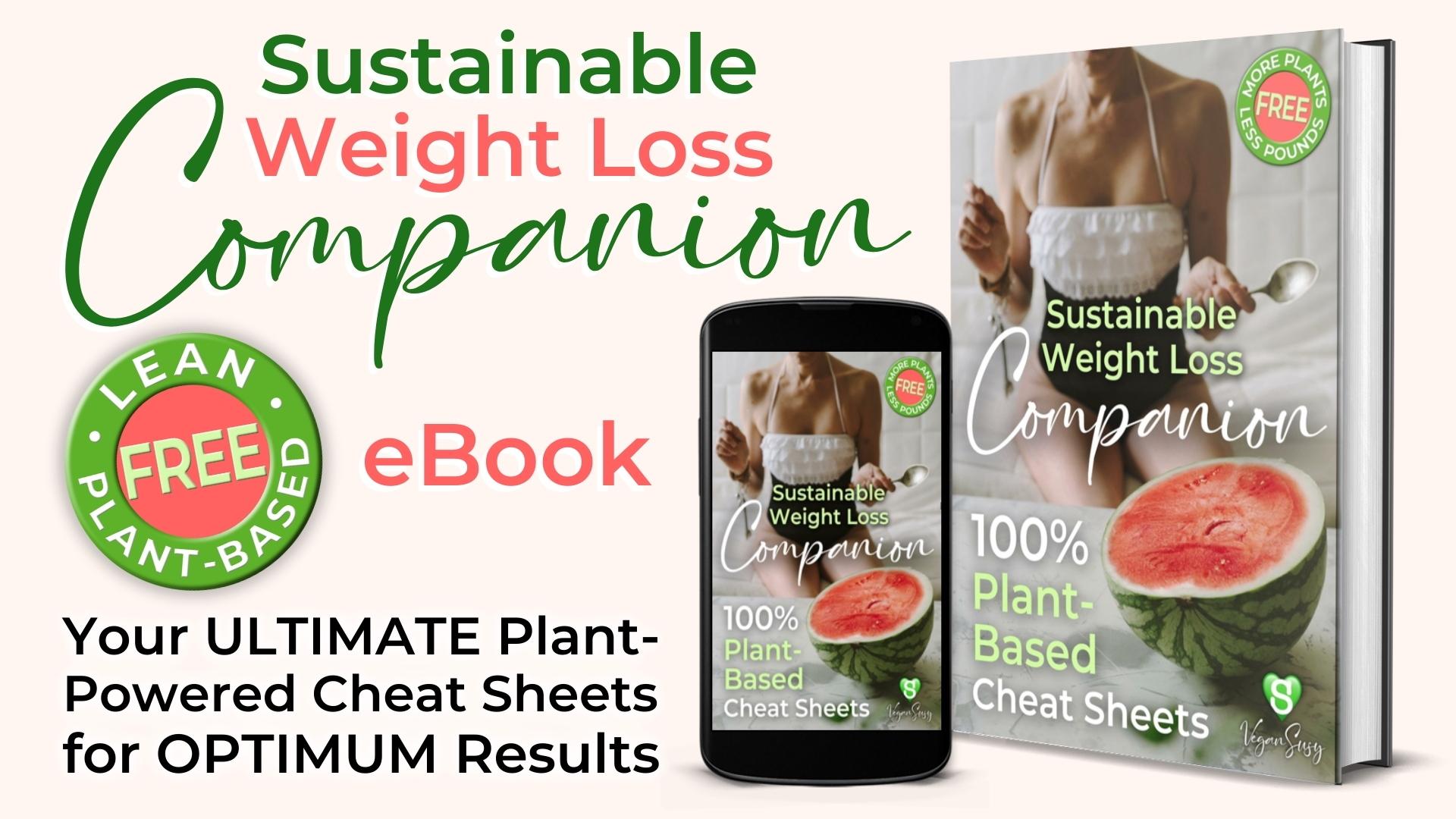
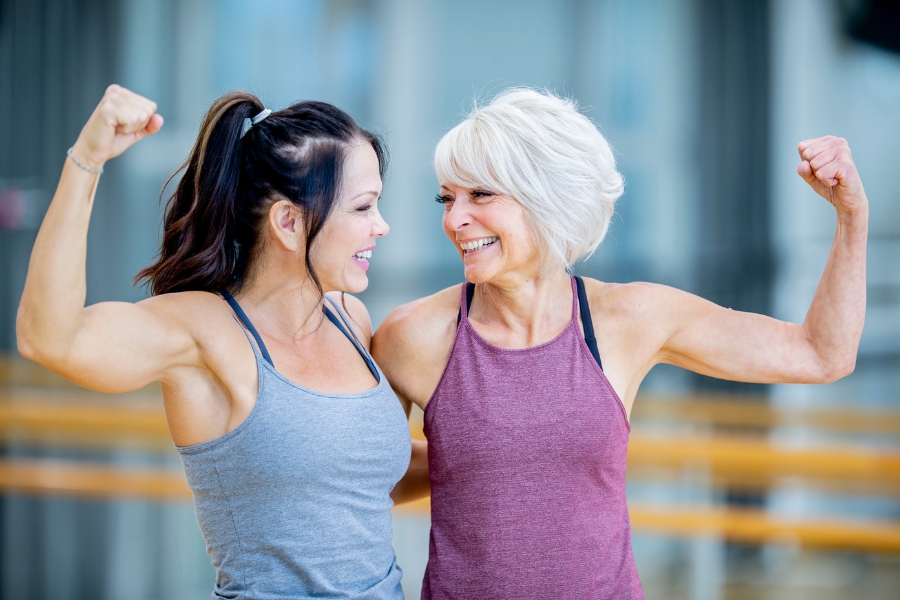
Building Strong Bones: Plant-Based Strategies for Women Over 40
Plant-Based Lifestyle Tips For Women
Author: Plant-Based Susy
Bone density typically doesn’t become an issue until around age 50. After this point, bone breakdown becomes faster than bone formation, and bone loss accelerates. This change typically happens around the time of menopause or perimenopause.
Menopausal changes mark an overwhelming time in a woman’s life, and having to worry about your bones on top of that makes that even more stressful.
If you’re navigating these changing seasons, a plant-based diet for bone health over 40 years old can positively change your life. A combination of a healthy diet packed full of fruits and vegetables and exercise is the key to building and maintaining strong bones, and a plant-based diet provides all of the nutrients needed for bone health.
Beyond following a nutritionally dense diet, one of the most significant parts of building bone density is working out. Combining a plant-based diet and exercise can set women up for success as they age.
You don’t want to wait until you have issues with your bones to take care of them. Start as early as you can to ensure your aging process goes smoothly. Let’s talk about how you can strengthen bones naturally with a plant-based diet.

Table of Contents:
What affects bone health?
According to Mayo Clinic, there are quite a few factors that can affect bone health, including:
Your diet: Not getting enough of certain nutrients like calcium in your diet can lead to early bone loss and lower bone density
Exercise: Those who aren’t physically active are at a higher risk of osteoporosis than those who get plenty of physical activity
Age: Your bones naturally become weaker and thinner as you get older
Hormone levels: The dropping oestrogen (estrogen) levels that come about when one hits menopause increase the risk of osteoporosis
Weight: If you are too thin or have a small body frame, and conversely if you are too overweight, you may have less bone mass as you age
Sex: Women are at a higher risk of osteoporosis than men because they have less bone tissue
Alcohol and tobacco use: Tobacco can weaken bones, and drinking heavily can increase the chance of osteoporosis
Race: White and Asian people are at a higher risk of osteoporosis
Family history: If there is a history of osteoporosis in your family, this can be a sign that you’ll develop it, too
Eating disorders: Being underweight and severely cutting calories makes bones weaker
Medications: Certain medications can damage the bones when taken long-term, including prednisone, cortisone, and dexamethasone
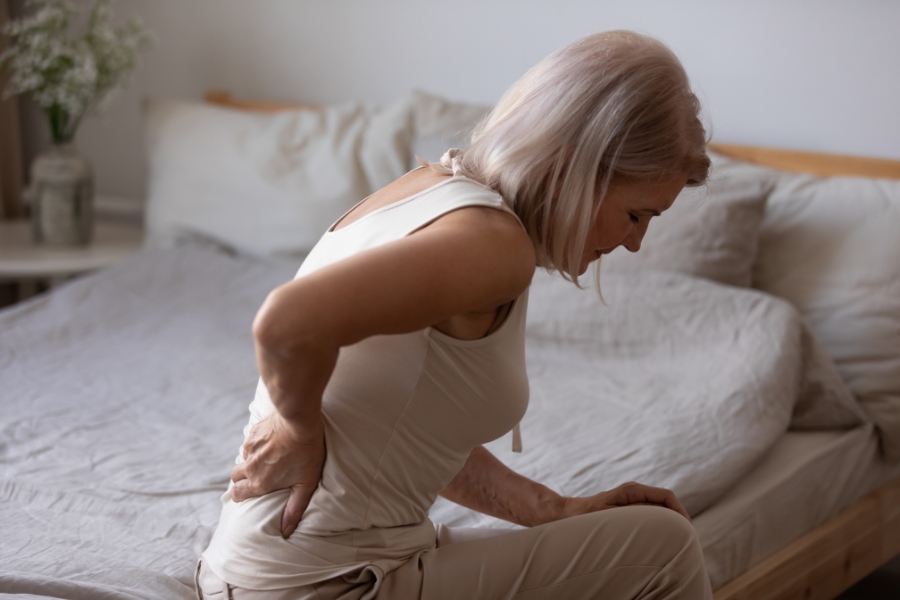
What is osteoporosis?
Osteoporosis is the loss of bone minerals and calcium, which increases the risk of fractures. According to the CDC, osteoporosis affects almost 20% of women 50 and up. It is more common in women than men, so it’s something to watch out for as an ageing woman.
If you have osteoporosis, there are ways to improve your bone health, including eating a healthy diet with plenty of calcium and vitamin D and lifting weights. It’s also beneficial to stop smoking and limit alcohol use.
Screening is recommended for women who are 65 years old and as early as 50 if their family has a medical history that would increase their risk. If your parents have had broken bones, especially a broken hip, it’s essential to speak to a medical professional who can check you over.
What nutrients do you need to build strong bones?
Contrary to popular belief, it’s possible to strengthen bones naturally with a plant-based diet. Plant-based foods can provide all the nutrients needed to build strong and healthy bones. The best part is you can ditch the adverse side effects and health risks that directly result from consuming milk and other dairy products.
Calcium
Calcium tends to be the most significant nutrient associated with bone health. This nutrient helps build and protect bones. The amount of calcium you should get daily depends on age and gender.
According to the National Institute of Health, adults 19-50 should aim to get 1,000 milligrams of calcium daily, and women 51 to 70 need 1,200 milligrams.
Plant-based sources of calcium include:
Beans
Chickpeas
Tofu
Leafy greens
Nuts
Seeds
Plant milks
Tahini
Soy
Molasses
Dried figs
Edamame
Broccoli
Potassium
Potassium is known to reduce calcium loss from bones and boost bone mineral density, which is beneficial for bone health. Beyond bone health, potassium is great for balancing sodium levels, digestion, and protecting against cardiovascular disease. Adults need around 3,500-4,700 milligrams of potassium each day.
Plant-based sources of potassium include:
Spinach
Avocado
Bananas
Dried apricots
Dried figs
Beets
Squash
Kidney beans
Tempeh
Edamame
Lentils
Broccoli
Oranges
Sweet potatoes

Vitamin D
Vitamin D is essential for bone health because it helps the body absorb calcium. It also helps with muscle function, which is important because strong muscles help you balance, reducing your chance of falling and breaking a bone. There are differing recommendations for how much Vitamin D you need each day. Typically, this falls somewhere between 600 IU and 800 IU.
Besides spending some time in the sun, plant-based sources of vitamin D include:
Tofu
Mushrooms
Almond milk
Coconut milk
Rice milk
Soya milk
Fortified cereals
Orange juice
The Sun Is Your Best Source of Vitamin D. There’s a good reason it's called “the sunshine vitamin.” It's recommended to get sun exposure for 5 to 30 minutes a day (without sunscreen), on most days of the week throughout the year, for your daily dose of vitamin D.
Vitamin C
Collagen is a protein that binds connective tissues in bones, and vitamin C is vital in its production. Vitamin C also helps boost immunity. The recommended amount of vitamin C women should get each day is 75 milligrams. This number increases during pregnancy. You can consume more vitamin C daily, but it’s best not to exceed 1,000 milligrams to avoid health issues.
Plant-based sources of Vitamin C include:
Strawberries
Kiwi
Potatoes
Bell peppers
Broccoli
Cantaloupe
Grapefruit
Tomatoes
Oranges
Kale
Spring greens
Papaya
Raspberries
Pineapple
Vitamin K
Vitamin K is believed to stimulate bone formation. It produces proteins in the bone, which helps keep bones from weakening. Studies have found a link between vitamin K and a lower incidence of hip fractures. Vitamin K is also essential for heart health and blood clotting. At least 90 micrograms are recommended for women each day.
Plant-based sources of Vitamin K include:
Brussel sprouts
Cabbage
Spinach
Kale
Lettuce
Broccoli
Spring greens
Spring onions (scallions)
Kiwi
Blueberries
Figs
Vitamin A
Before you load up on vitamin A, note that we bring this nutrient to your attention for a different reason. While vitamin A is essential for vision, growth, immune system, and reproduction, too much of this nutrient can lead to bone issues and even osteoporosis. Extreme amounts of vitamin A can lead to more fractures. The recommended daily amount of vitamin A is 700 micrograms for adult women.
Plant-based sources of Vitamin A include:
Carrots
Sweet potatoes
Spinach
Kale
Broccoli
Red peppers
Mango
Papaya
Apricots
Butternut squash
Cantaloupe melon
Pumpkin
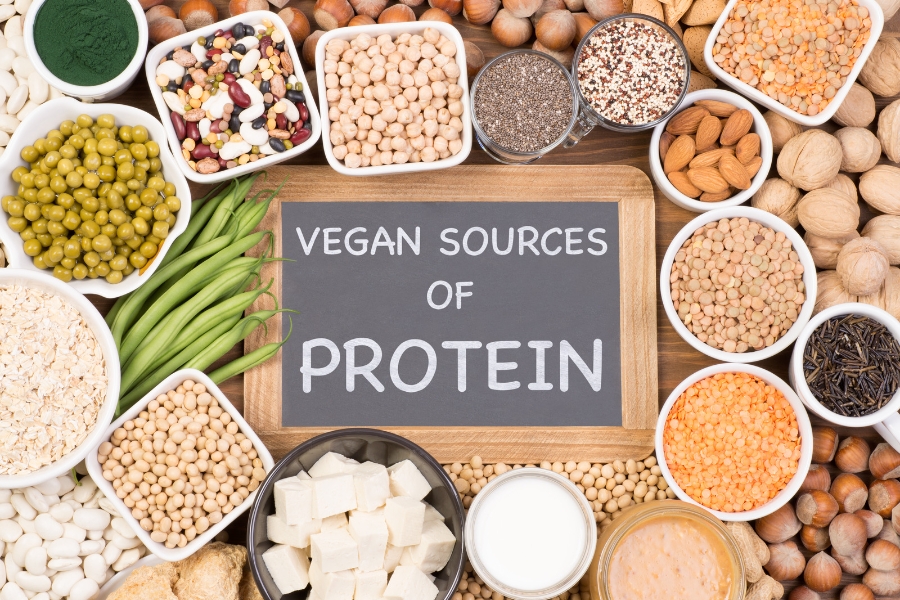
Protein
Tofu
Quinoa
Nuts
Chickpeas
Lentils
Chia seeds
Hemp seeds
Tempeh
Oats
Nutritional yeast
Beans
Magnesium
Magnesium is essential for bone health and helps prevent bone loss. The majority of the magnesium in the body is stored in bones. Magnesium also supports other nutrients like calcium and vitamin D, which are significant for bone health. Adult women need 310 to 320 mg of magnesium.
Plant-based sources of magnesium include:
Tofu
Quinoa
Nuts
Chickpeas
Lentils
Chia seeds
Hemp seeds
Tempeh
Oats
Nutritional yeast
Beans
There are plenty of plant-based options that meet the vital nutrient needs necessary for bone health. This variety means you can build a range of delicious meals to support your bones. Beyond eating plenty of these foods and meeting the requirements listed above, there is another necessary piece to bone health. Working out is just as important as following a beneficial diet.
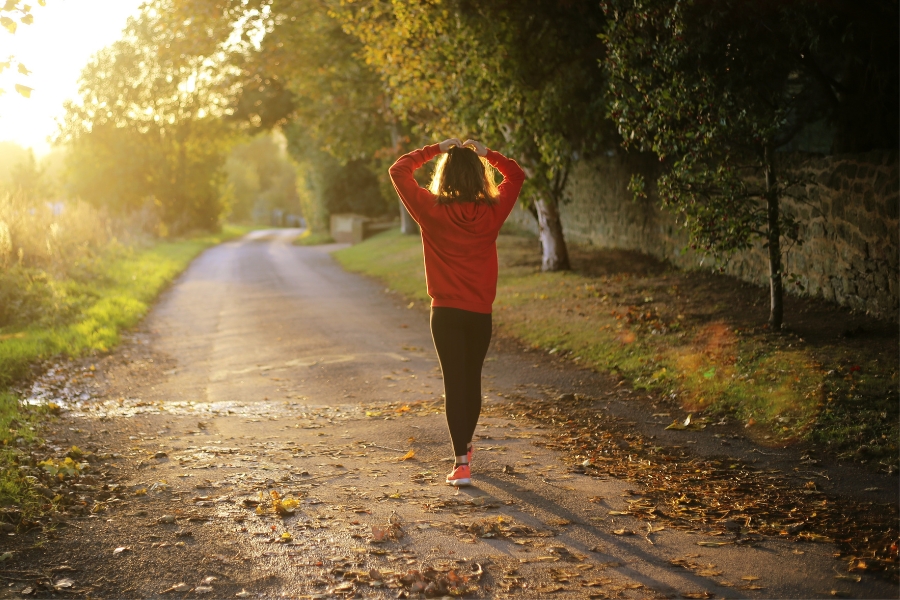
The ultimate path for bone health over 40
If you work a desk job, spend lots of time on the couch, and don’t get much movement daily, you may have weak muscles, poor balance, and bad posture. Dealing with these issues increases the risk of fractures. Studies show that exercise is an effective way to stimulate bone osteogenesis, which is the development of bones.
Regular exercise reduces the rate of bone loss and works to conserve bone tissue. However, pushing yourself too hard with physical activity can increase the risk of fractures and cause other issues, so don’t overdo it.
If you have bone health issues or osteoporosis, exercise can benefit your life and health. You’ll want to seek advice from a healthcare professional if you start a new exercise program, especially if you’re dealing with osteoporosis. In addition to muscle strength, the benefits of exercise include:
Reduced pain
Better mood
Reduced risk of bone fractures
Better balance
Better coordination
Better mobility
Improved reaction time
More bone mass
Reduced bone loss
As you age, your bones will be at a higher risk of having issues, and you may even lose muscle. It’s essential to start implementing a good workout routine before you see these issues. This is key to preventing falls and fractures and maintaining bone health.
U.S. Department of Health and Human Services advises adults to get at least 150 minutes of moderate-intensity exercise a week or 75 minutes of vigorous-intensity exercise. This should include a range of strength training, aerobics, and balance training for older adults.
What are the best exercises for bone health?
Exercise is important for bone health. Exercising regularly reduces the rate of bone loss and carries many other bone-related benefits. Getting a variety of movements each and every day is essential to treating your bones right and building strength for a healthy and beautiful future.
Figuring out which movements work for you and your bones can help you achieve your goals. You’ll want to avoid movements that come with a high risk of falling. Bones need a combination of weight-bearing exercises, resistance training, and balance training.
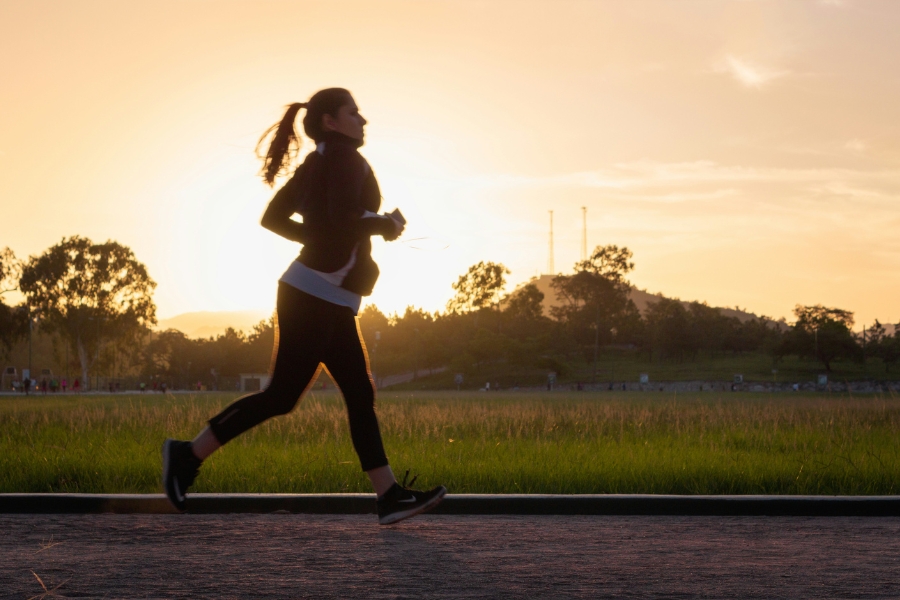
Weight-bearing exercises
Weight-bearing exercises require muscles and tendons to apply tension to the bones. This encourages the bones to make more bone tissues, becoming more dense. Stimulating your bones through weight-bearing exercises strengthens the muscles and supports bones. Weight-bearing exercises to try include:
Dancing
Climbing stairs
Tennis
Pickleball
Walking
Running
Skipping
Practicing weight-bearing movements for at least 30 minutes most days would be best. If you’re not used to working out, it’s best to start slow and build up the duration of your workouts over time. Don’t practice these exercises daily or at a high intensity until you’re ready.
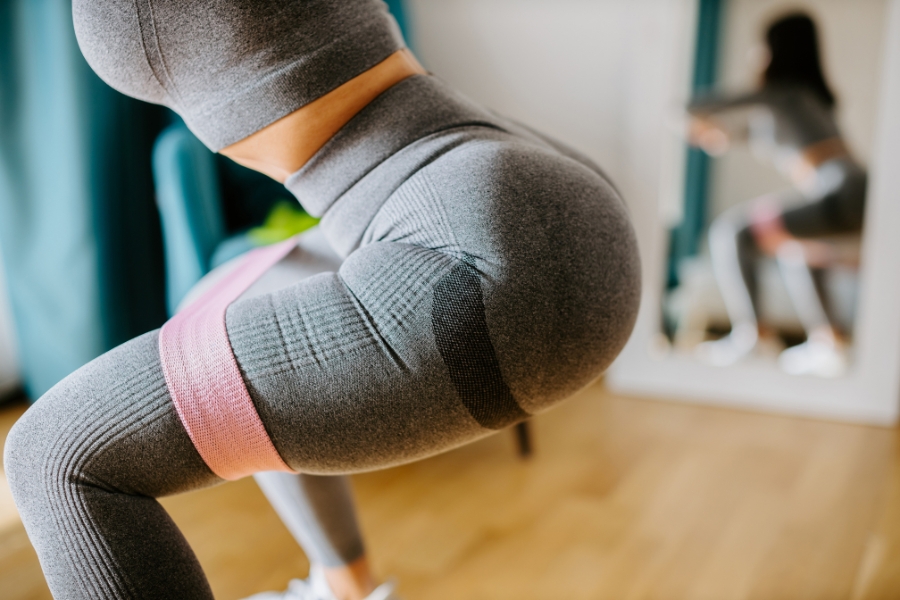
Resistance training
Resistance training allows your body to deal with mechanical stress, triggering bone-forming cells to make new bone tissue. Strength training like this slows bone loss, preserves bone mass, and increases bone strength and density.
2 to 4 resistance training sessions a week are ideal, to maintain and even build strength, to minimise and even even reverse bone loss and sarcopenia (muscle loss with ageing).
Resistance training exercises to try include:
Pushups
Pullups
Squats
Resistance bands
Weight machines
Free weights
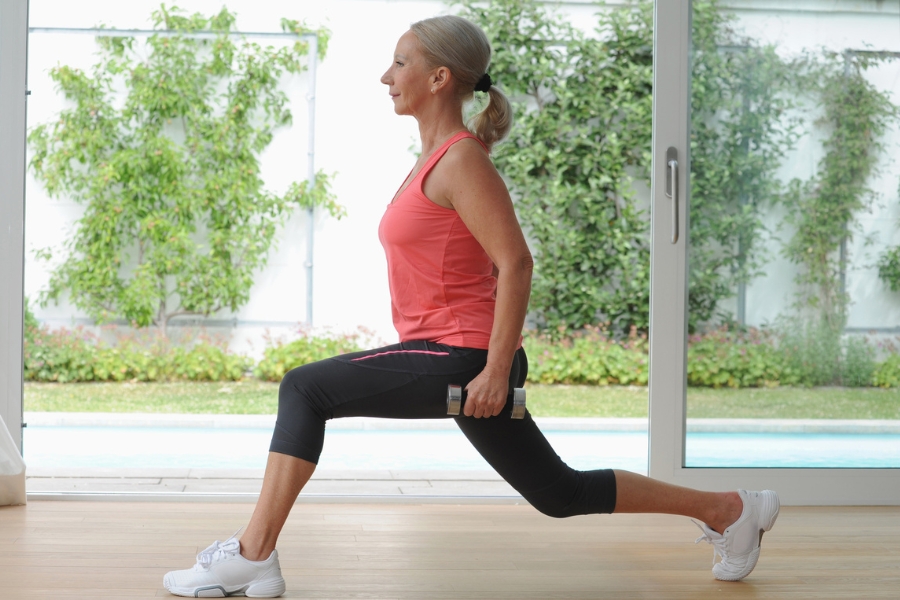
Balance training
Having a good sense of balance is critical to reducing the risk of falls. This decreases your chance of fractures and improves bone health.
Balance training exercises to try include:
Tai chi
Walking backward or on an unstable surface
Lunges
Reverse lunges
Step-ups
Standing on one foot
If you’re frail, it can be helpful to work with a personal trainer or physical therapist who knows how to help you succeed. They will guide you in movements that are good for your needs and help you challenge yourself in a way that doesn’t push you to the point of injury.
Frequently Asked Questions
What is bone density?
Strong bones are a big part of your overall health. Bone density is the amount of bone mineral in your bones, and it’s the main way of understanding your bone health. Bone density tests are designed to measure how strong your bones are.
If you have a family history of weak or broken bones, getting tested can be a good idea. Low bone density can lead to serious medical problems and fractures, so it’s helpful to know where you stand.
How can bone density be improved and healthy bones built?
A proper diet and physical activity are the most significant parts of improving bone density. You’ll want to ensure you get enough calcium, vitamin D, vitamin K, vitamin C, protein, and potassium. Eating a diet high in vegetables protects bone mass in older women and young adults.
Don’t restrict your calories too much, and avoid yo-yo diets or extreme low-calorie diets. Maintaining a stable and healthy weight is important, as being too slim can cause more issues with bones. Following a nutritionally dense plant-based diet should help with that. It’s also good not to smoke or drink too much.
Do you need to drink milk for calcium?
No, you don’t need to drink milk for calcium. Plants are the natural source of calcium. Cows get calcium from plants, and so many people have been manipulated by strong marketing campaigns to believe milk is the only way to get calcium. You can have healthy bones without consuming dairy or other animal products.
There are tons of great plant-based sources of calcium. You will find small amounts in beans, lentils, nuts, seeds, and tofu. More absorbable options include kale, broccoli, and fortified plant milk. Leafy greens are also great options for your calcium intake. It’s more beneficial to get your calcium from a variety of plant-based foods than it is to get this nutrient from a supplement.
How can you prevent falls and injuries?
Eating a healthy diet and working out are great ways to improve strength, balance, and flexibility. Beyond these habits, there are other ways to prevent falls and injuries. Wear sensible shoes. If you work in a restaurant or somewhere where slip-resistant shoes make sense, wear those.
Ensuring ample light in your living space and keeping it free from potential tripping hazards is a safety measure and a way to instill a sense of security. A well-lit environment can significantly reduce the risk of falls, making you feel reassured and safe.
It's also important to moderate your alcohol intake and prioritise sufficient sleep to prepare your body for the day's challenges. Avoid sudden movements whenever possible, and if you do fall, try to land on your bottom to minimise the impact on your back.
Can I build strong bones without dairy on a vegan diet?
Yes, plant-based sources like leafy greens and fortified foods provide ample calcium.
The Bottom Line
Bone health is vital to overall well-being, especially as you get older. Women are at a higher risk of having bone issues or developing osteoporosis, so women must take care of their bone health. One of the best ways to do this is to strengthen bones naturally with a plant-based diet and get plenty of exercise.
If you haven’t hit 40 yet, it’s never too soon to start working towards improving your bone health. So often, people wait until they see issues to start taking care of themselves, but you can start before things get bad. If your family has a history of fractures or osteoporosis, it’s especially important to start taking care of your health now.
Eat a nutritionally dense diet and pay special attention to getting all the nutrients responsible for bone strength and density. Start working out and incorporate various weight-bearing exercises, resistance training, and balance training. You should work out multiple days a week but don’t overdo it. Going too hard with movement and gym sessions can cause more harm than good.
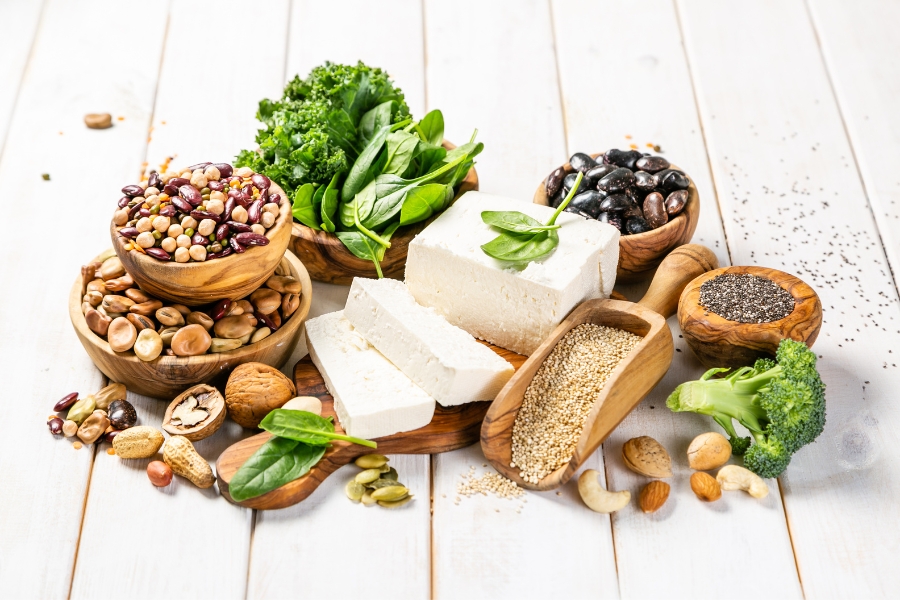
💚 "Happy Plant-Based Eating & Exercising!" 💚

Plant-Based Susy
Plant-Based Nutrition Professional & Weight Loss Coach
Empower Yourself: Embark on a Delicious Fat Loss Adventure

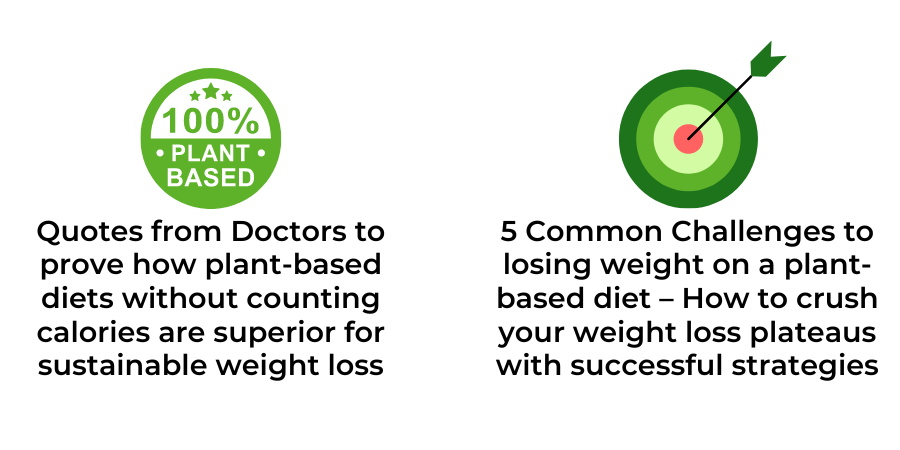
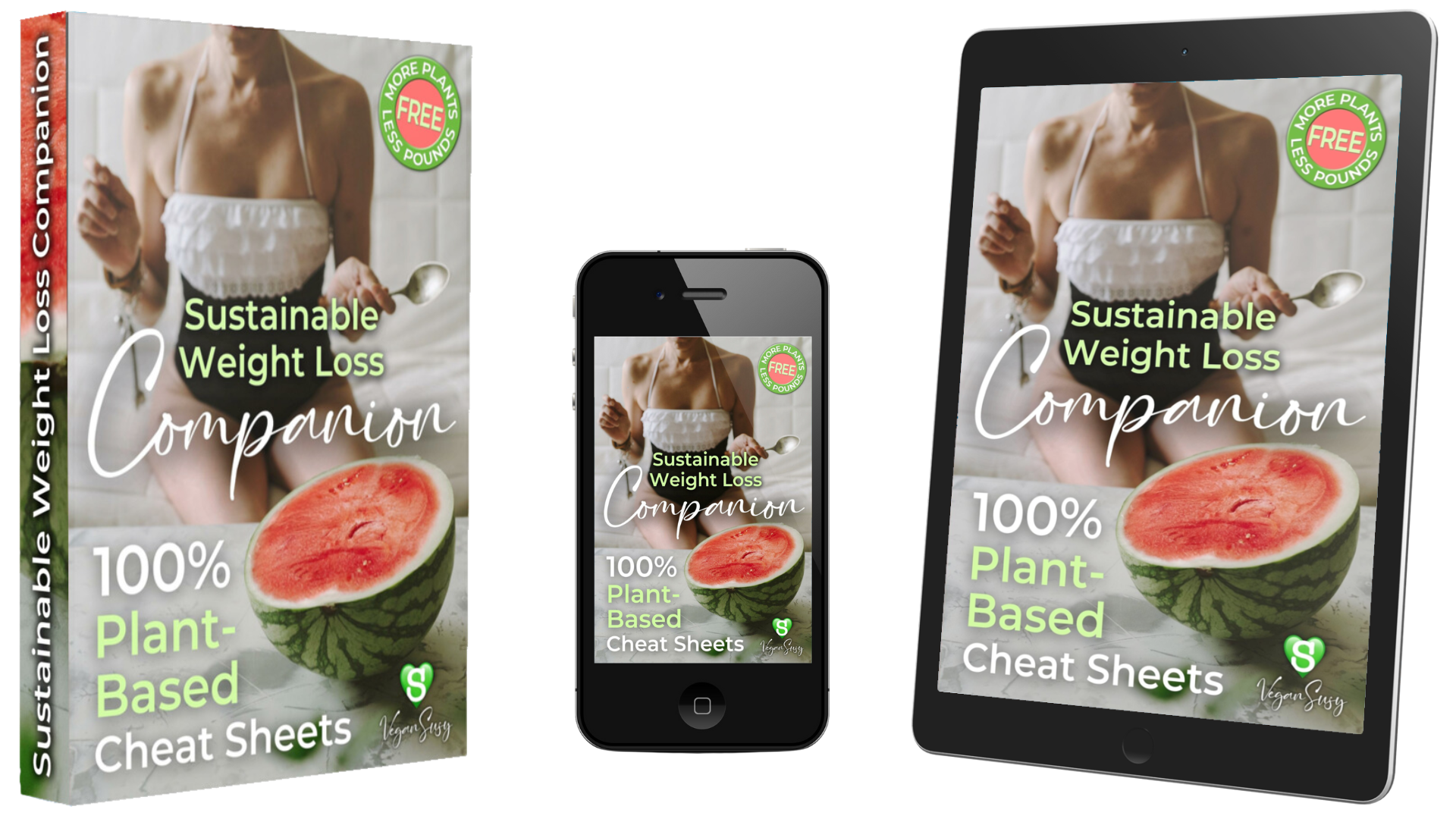
🍉 Get Ready to Jump Start Your Fitness Goals AND DISCOVER A HEALTHIER YOU!
🍉 Let's Make Your Fat Loss & Optimum Health Journey a Delicious Success Story!
🍉 Get The FREE Sustainable Weight Loss Companion eBook and CHEAT SHEETS!
More Free Resources
Unlock Your Transformation Today!
© 2025 VeganSusy Ltd. All Rights Reserved

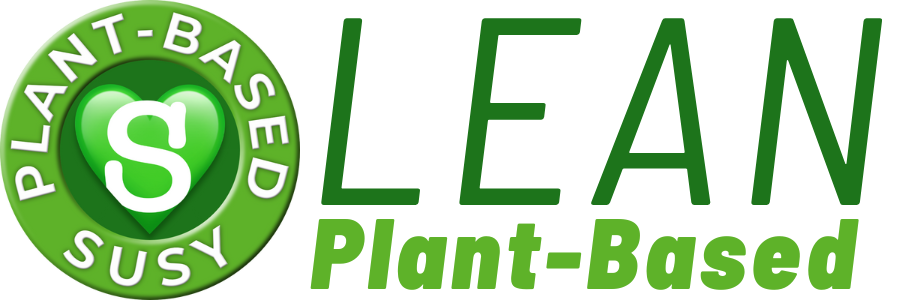
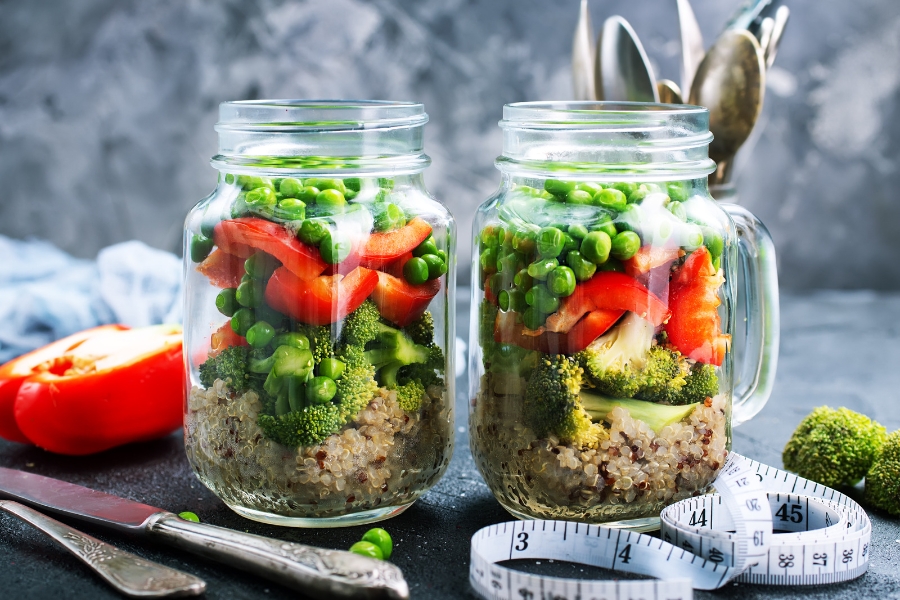
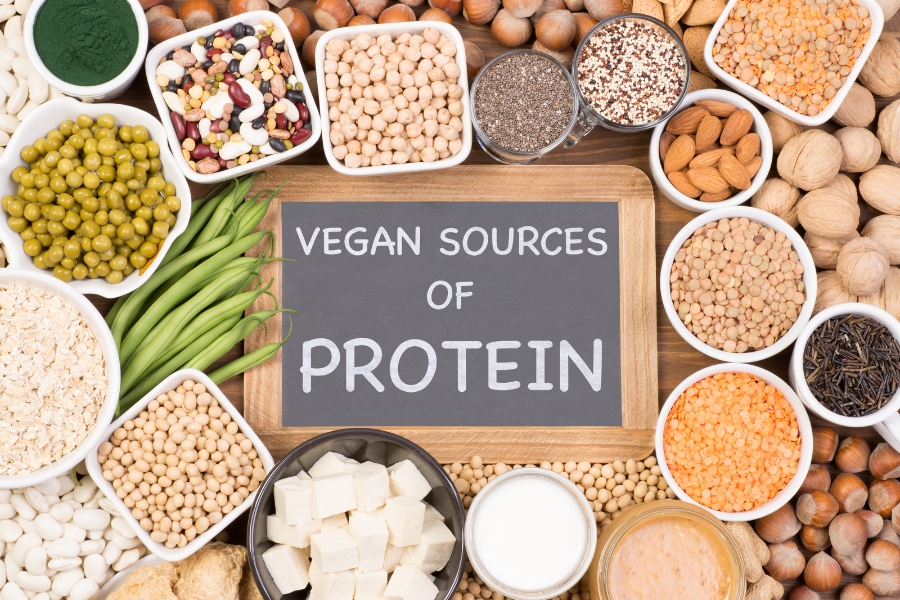
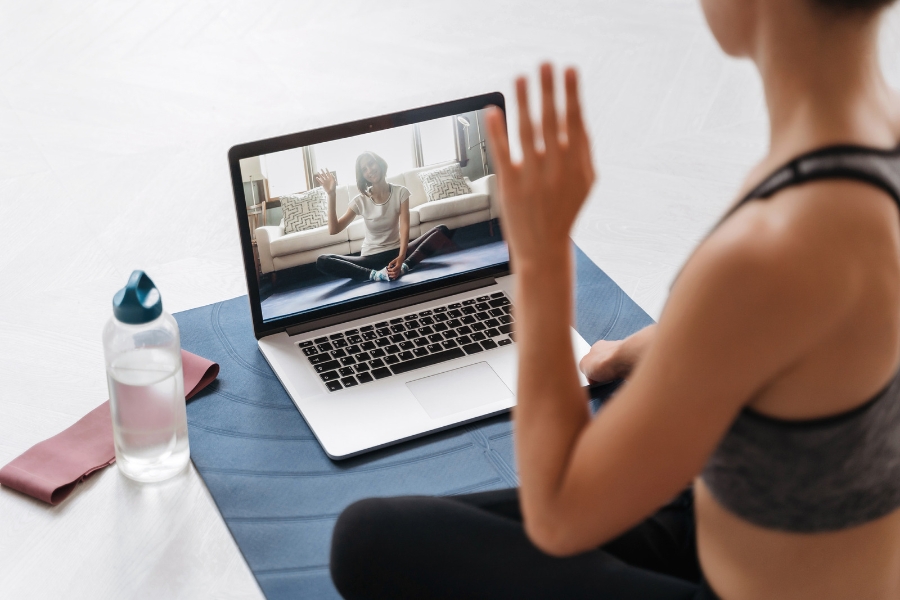
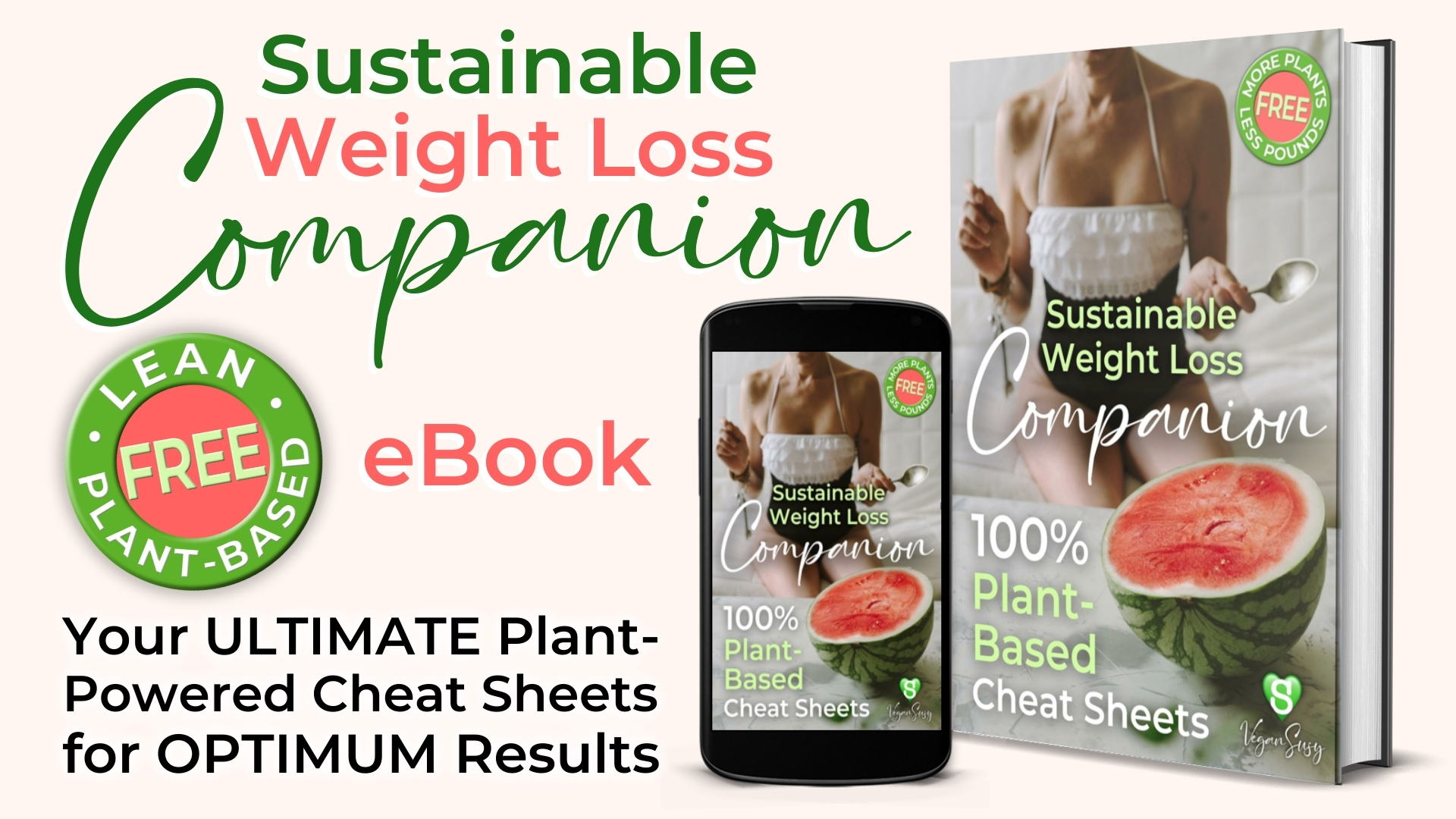





Facebook
Instagram
Youtube
Pinterest